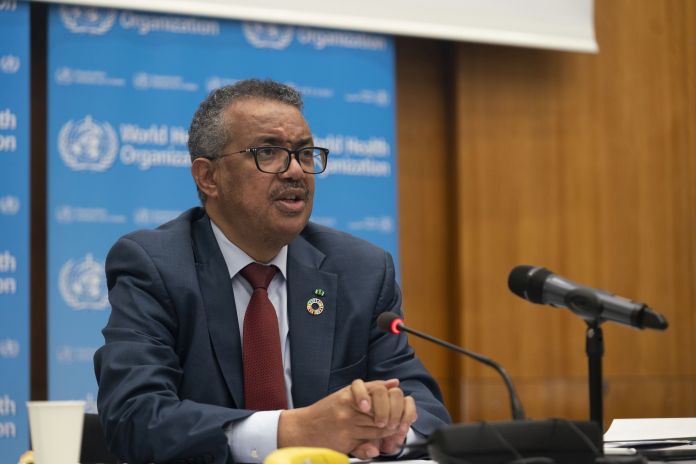Thank you, Secretary Anthony Blinken
We’re grateful for the leadership of the United States and all countries here today. I’ve just returned from South Africa yesterday, where I met with president Ramaphosa and saw first-hand the progress underway at the WHO mRNA vaccine technology transfer Hub. The commitment from the government and the private sector is real.
This historic initiative comes at a critical time. In some countries, high vaccine coverage, combined with the lower severity of Omicron, is driving a false narrative that the pandemic is over.
At the same time, low vaccine coverage and low testing rates in other countries are creating the ideal conditions for new variants to emerge. We can bring the pandemic under control this year – but we are at increased risk of squandering that opportunity.
Currently, 116 countries are off track for our shared target of vaccinating 70 percent of the population of every country by the middle of this year. Through the ACT Accelerator and the COVAX pillar and our partnership with UNICEF, we are now overcoming some of the supply and delivery constraints we faced last year, with more than 1 billion vaccine doses shipped.
In many countries, the issues are not primarily a problem of absorptive capacity. We need to urgently support political leaders to accelerate the rollout of vaccines. We welcome the ongoing engagement of all countries represented here today, the lines of effort proposed by the United States, and continued alignment with the ACT Accelerator and the African Vaccine Acquisition Trust (AVAT).
Let me leave you with three requests.
First, to vaccinate the world, we ask all countries to support WHO’s global target of 70 percent.
Second, to save lives now, we ask all countries to contribute their fair share to fully fund the ACT Accelerator, especially for the immediate need of US$ 16 billion.
Third, we need to support models such as the mRNA technology transfer hub in South Africa and its network of spokes around the world, to build capacity for controlling COVID-19 and other preventable diseases.
As I mentioned, I have just witnessed the collaborative work being done at the Hub and by the vaccine developers participating in this historic effort, including Afrigen, Biovac, and the Biomedical Research Institute at Stellenbosch University.
Fostering local vaccine manufacturing capacity throughout the globe, supplemented by temporary intellectual property waivers for COVID-19 tools, will help bring this pandemic to an end and keep us all safer. By working together, across the public and private sectors, we can bring the pandemic under control and drive an inclusive and sustainable recovery.
I focused on the three recommendations, and I fully agree with Secretary Blinken’s six recommendations.
I thank you,
Dr Tedros Adhanom Ghebreyesus,
Director-General, World Health Organisation (WHO).





